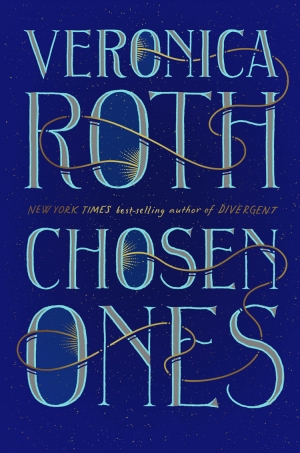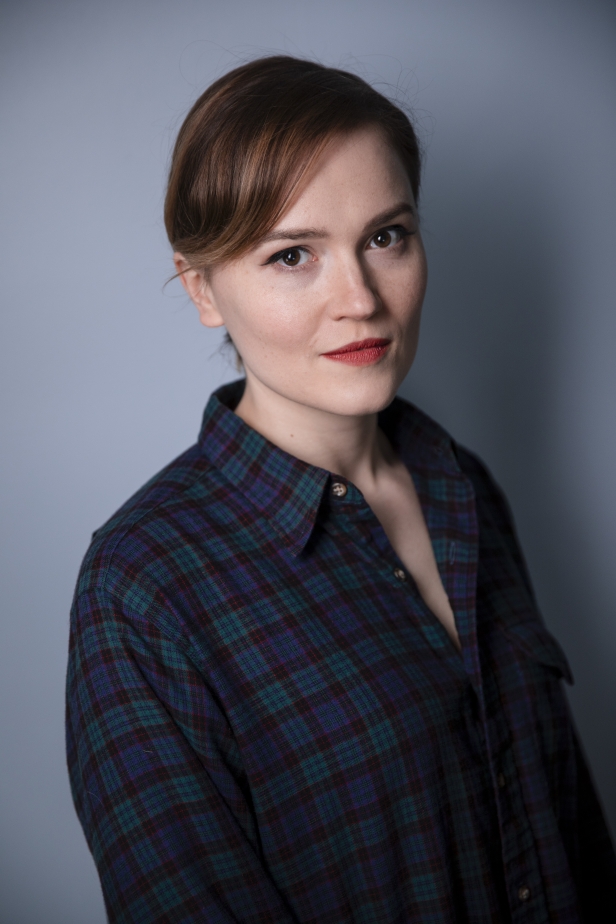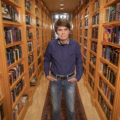Can you tell us more about your upcoming novel, Chosen Ones?
Chosen Ones is about a group of people who saved the world when they were teenagers. They took down the ‘Dark One’, a being of great evil who wreaked havoc across North America.
Now, ten years later, they’re the most famous people ever to have existed, famous for something that haunts every one of them − especially the main character, Sloane. But she finds out that just because you take down evil once, doesn’t mean evil disappears, and it doesn’t mean your story is over. Basically, if you ever read or watched a ‘chosen one’ story when you were younger − which, if you like genre fiction, is pretty much unavoidable! − this book is about what comes next.
Why did you decide to move on from young adult fiction to adult fiction for this novel?
It was a creative move, really − I got the idea for Chosen Ones. I grew up on Harry Potter, and Dune, the Animorphs books, The Matrix, Buffy − they’re all ‘chosen one’ stories. I even wrote one myself, with Divergent. So the question of what might come after − not so much on a plot level, because some of the stories I listed do continue − but psychologically and emotionally kept tugging at me. And that idea, at its core, is not a coming of age story. It’s a ‘well, okay, I’ve come of age… now what?’ story.
Chosen Ones takes an interesting deviation in that it’s set in the aftermath of a great battle between good and evil, what made you decide to take this route?
The ‘aftermath’ part was really the core of the idea for me! But I think the reason it appeals to me now, particularly, is that I’m a little older. I know what it’s like to spend your whole life preparing for one thing, getting that thing, and then having to sort out what comes next. We all do − I mean, what is school, exactly, if not a long preparation for getting a full-time job, moving out of your parents’ house, maybe getting married or having kids of your own? And reaching that place is a pivotal moment. You have to figure out where to go, what to strive for. You have to deal with the choices you’ve made and the person you are.
But there’s another story there, in that aftermath. There’s plenty of adventure left, for all of us. Thank god.
There are numerous snippets throughout the novel that deviate from straightforward prose with newspaper articles and official memos etc – can you tell us more about why you decided to include these?
I started writing them because even though I wanted to tell the story of what came after the big battle, you still need to see what the big battle was, and why it left our heroes in the position they’re in ten years later. The documents were a great way to do that to give the most complete picture of what happened. And throughout the rest of the book, they do the same thing: they build a more complex, more well-rounded world. They were such a challenge − every single interstitial required a lot of research! − but the end result was more than worth it to me. Plus, they were absurdly fun to write.
We loved the complexity of the strong female lead character Sloane; she is very independent but also part of a co-dependant group of chosen ones. What inspired you with this character? We thought it was also great that the protagonist wasn’t the so-called ‘leader’ of the group…
The way I see it, the ‘before’ story, the one about the big battle, that’s not really Sloane’s story. She’s an important figure there, but she has more of the ‘love interest’ role. And in the ‘chosen one’ stories I read or watched when I was growing up − with the exception of Buffy − that was always the role of the woman. She’s there to be kissed, you know? She’s there to be rescued, along with the world. But the story doesn’t actually belong to her.
Part of playing with tropes like this is indulging them before you upend them. So Sloane gets to be the love interest figure before. And then she gets her own story.

We also liked how each chosen one was very different and each dealt with their ‘celebrity’ status in a different way – how has your experience been since the successes of your Divergent novels?
Divergent was a whirlwind, and I didn’t really know how to think about it at the time, but I have some perspective over it now − and that’s what’s on display in Chosen Ones. Each one of these characters encounters fame in a way that I connect to, even if it’s just in a small way: Esther revels in it, Albie crumples beneath it, Ines fears it but also makes use of it, Matt experiences it as a burden and a duty, and Sloane despises it. They show us all the paths we might take, if we suddenly found ourselves world famous. Maybe we would hate it, maybe we would spend all our time on the ’gram! Maybe it would make us paranoid, maybe all three! I don’t know, but it’s a good personality test, like tag yourself, which Chosen One-fame-reaction are you?
There is very much an emphasis on PTSD and coping after a horrific event in the novel, why did you decide to explore these themes?
I think those themes are kind of baked into the idea. Regardless of the other things Sloane went through, when you boil her story down to its basic elements, what she’s famous for is killing a man. An evil man, sure, and one who needed to be stopped, but still − her and her four friends ultimately killed someone. Something like that would have a real emotional and psychological cost for a person. Even though there are a lot of things I’m playing with and delighting in with this book, I did want to take that seriously.
Some of the magic within the novel is based on real folklore − Koschei for instance is based on a real folklore story of someone who cast a spell to make them immortal − did you do much research for the novel beforehand or is it something that you’re interested in?
Sometimes I am interested in a thing and I find a way to work it into a story, and sometimes I’m writing a story and I need a thing for it that turns out to be interesting. This is one of those latter times. I like folk tales, but I wouldn’t say I had an existing fascination with them before writing − I just wanted the magical objects in the story to have their origin in folklore, so I dove headfirst into the internet. When I read about Koschei, though, I knew I had to incorporate him. He’s immortal, and he keeps his soul in a needle, or an egg, which is in a duck, or a box, or some other animal. It’s half-poetry, half-humour, and I love it.
In the novel, magic means different things to different characters, what inspired you to go down this route?
I started with a magical system that was purely technical: it was just about sound frequency. But there had to be variations in magical skill, or there wouldn’t be an evil force more powerful than everyone else that’s threatening to destroy the world, right?
So I decided that the other aspect of magical power would be related to desire. How well you know your own desires, how desperately you want something, how pure your desires are, they all influence your magic. That way, you can learn a lot about a character by how powerful they are, or by how they think of magic itself, which is really interesting to me. And then, Sloane’s struggle with magic becomes bigger than just her inability to master a skill − it’s about how well she knows herself, and about her emotional struggle, too. Basically, any time a story element can do more than one job, I get really excited about it.
What authors/novels are you reading at the moment?
I just finished The City In The Middle Of The Night by the brilliant Charlie Jane Anders, and now I’m reading This Is How You Lose the Time War, by Amal El-Mohtar and Max Gladstone.
What’s next for you?
I’m going to take a bit of a breath, take a look around… and then get to work on the sequel to Chosen Ones!
Chosen Ones is out now from Hodder & Stoughton.


